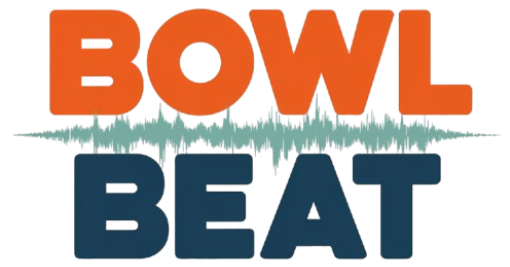The Super Bowl is more than just a football game; it’s an event that captures the hearts of millions. Every year, fans gather around their screens, donning team jerseys, and preparing for a spectacle that combines athleticism, entertainment, and tradition. But have you ever wondered about the longest Super Bowl time? In this article, we’ll dive deep into game durations, historical records, and what makes these extended games so memorable.
What is the longest Super Bowl time
The longest Super Bowl in history lasted 4 hours and 14 minutes during Super Bowl XLVII in 2013, extended by a 35-minute power outage. Typically, the Super Bowl averages around 3 hours and 30 minutes, but unique events like this can significantly impact its duration, making it a memorable spectacle.

Understanding Game Duration
To grasp the concept of the longest Super Bowl time, we need to understand how game durations are structured.
Regulation Time
A standard NFL game consists of four quarters, each lasting 15 minutes. This means that in theory, a game could last about 60 minutes. However, with stoppages for timeouts, injuries, and other interruptions, the actual time spent playing can extend significantly.
Overtime Rules
In rare cases where teams are tied at the end of regulation, overtime comes into play. The rules have evolved over time, but currently, if a game goes into overtime, it consists of one 10-minute period. If neither team scores during this time, the game ends in a tie during the regular season. However, in the playoffs (including the Super Bowl), teams continue to play until there is a winner.
Historical Context: Longest Super Bowls
Now that we have a grasp on how game durations work, let’s explore some historical instances where Super Bowls have defied expectations in terms of length.
The Record-Breaking Super Bowl XLVII
Super Bowl XLVII, played on February 3, 2013, between the Baltimore Ravens and San Francisco 49ers, holds a special place in history not just for its thrilling gameplay but also for its extended duration. The game clocked in at approximately 4 hours and 14 minutes. This was largely due to a power outage that caused a significant delay in play during halftime.
Super Bowl LI: A Game for the Ages
Another contender for the longest Super Bowl is Super Bowl LI, held on February 5, 2017. The New England Patriots faced off against the Atlanta Falcons in a game that went into overtime for the first time in Super Bowl history. The total duration was around 4 hours and 2 minutes. This match is particularly memorable because it featured one of the greatest comebacks in sports history.

Factors Influencing Game Length
Several factors contribute to extending the duration of a Super Bowl beyond its standard timeframe.
Halftime Shows and Their Impact
One of the most anticipated aspects of any Super Bowl is its halftime show. These performances can last anywhere from 12 to 30 minutes and often feature elaborate setups that require additional time for transitions. While fans love these shows, they do add to the overall length of the event.
Commercial Breaks: The Unseen Time Consumers
Super Bowls are famous for their commercials—often touted as some of the best ads of the year. However, these commercial breaks can significantly stretch out the game’s duration. With advertisers willing to pay millions for airtime during this high-stakes event, expect longer breaks between plays.
Fan Experience: What Does Longer Mean?
For fans watching at home or in stadiums, longer games can evoke mixed feelings.
The Thrill of Extended Play
For many fans, an extended game means more excitement. More plays lead to more opportunities for incredible touchdowns and nail-biting moments. It’s like savoring your favorite dessert—why rush through it when you can enjoy every bite?
Challenges of a Lengthy Game
On the flip side, longer games can lead to fatigue—especially for viewers who may have been celebrating with friends or family throughout the day. Keeping attention spans intact becomes crucial as players battle it out on the field.
Conclusion: The Legacy of Long Super Bowls
The longest Super Bowls not only showcase thrilling football but also highlight how various elements—from halftime shows to commercial breaks—impact game duration. As fans continue to revel in these epic clashes on the gridiron, it’s clear that whether it’s a record-breaking marathon or a nail-biting finish in regulation time, every second counts in making these games unforgettable.
People Also Ask About Super Bowl Duration
What is the average duration of a Super Bowl?
On average, a Super Bowl lasts around 3-4 hours when accounting for halftime shows and commercial breaks.
Have there been any ties in Super Bowls?
No, all Super Bowls have ended with one team winning; however, ties can occur during regular-season games.
What was the shortest recorded Super Bowl?
The shortest was Super Bowl XXV (1991), lasting about 2 hours and 40 minutes due to fewer stoppages and fewer scoring plays.
How do halftime shows affect game length?
Halftime shows typically last between 12-30 minutes and significantly extend overall game time.
Why do commercial breaks take so long during the Super Bowl?
Advertisers pay top dollar for airtime during this high-viewership event; thus breaks are longer to maximize exposure for their brands.
Related Article
How long are Super Bowl periods?
How many Super Bowls have there been?
Who won the last Super Bowl?
What team has won the most Super Bowls?
Who has the most Super Bowl MVP awards?
Interesting facts about the Super Bowl

